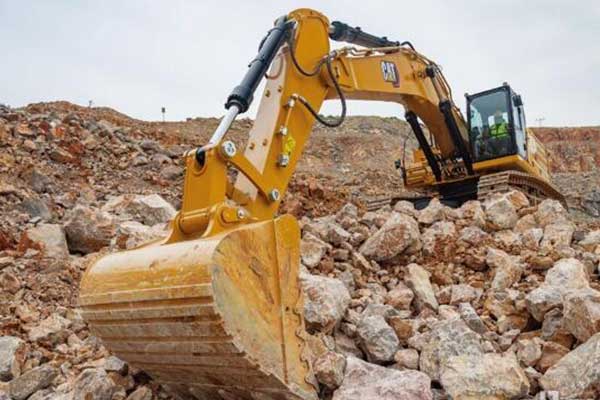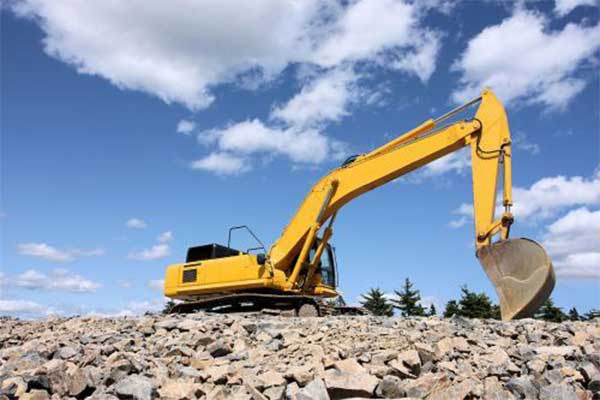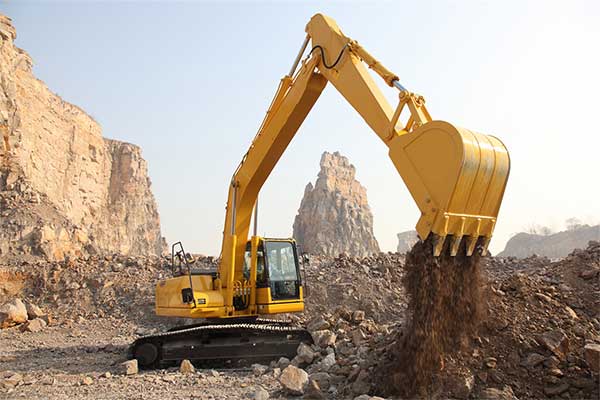What is an Excavator? Components, Types, Uses, Benefits
When it comes to heavy construction equipment, excavators stand out as one of the most versatile and essential machines on any job site. Whether you’re working on a small residential project or a massive commercial construction, understanding what an excavator is and how it can be used is crucial. In this comprehensive guide, we will delve into the details of what an excavator is, its main components, types, uses, and benefits.

What is an Excavator?
An excavator is a powerful piece of construction equipment designed for digging, moving earth, and handling various materials. Characterized by its long arm and bucket, an excavator operates on a hydraulic system that allows for precise movements and significant lifting capabilities. These machines are commonly used in construction, demolition, mining, and many other industries.
Main Components of an Excavator
An excavator is composed of several key components that work together to perform its functions efficiently:
- Cab: The operator’s compartment, equipped with controls and a comfortable seat, often with climate control and advanced technology for ease of operation.
- Boom: The long arm attached to the cab, which extends outward to perform digging and lifting tasks.
- Stick (or Dipper Arm): Connected to the boom, this component further extends the reach of the excavator and holds the bucket.
- Bucket: Attached to the end of the stick, the bucket comes in various shapes and sizes, designed for digging, scooping, and carrying materials.
- Hydraulic System: Powers the movements of the boom, stick, and bucket, providing the force necessary for digging and lifting.
- Tracks or Wheels: Depending on the type of excavator, these provide mobility and stability on various terrains.
- Engine: The power source of the excavator, typically diesel-powered, which drives the hydraulic system and other functions.

Types of Excavators
Excavators come in various types, each suited to specific tasks and environments:
- Crawler Excavators: Equipped with tracks, these are ideal for rough terrain and heavy-duty tasks. Their stability and traction make them suitable for mining, forestry, and large-scale construction projects.
- Wheeled Excavators: These have wheels instead of tracks, making them faster and more maneuverable on paved surfaces. They’re often used in urban construction and roadwork.
- Mini Excavators: Also known as compact excavators, these smaller machines are perfect for tight spaces and smaller projects like landscaping, utility work, and residential construction.
- Long Reach Excavators: With extended arms, these are used for tasks that require a long reach, such as dredging or demolition in hard-to-reach areas.
- Suction Excavators: Utilizing high-pressure vacuum technology, these are used for precise excavation tasks where minimal ground disturbance is required, such as utility work and pipeline construction.
Uses of Excavators
Excavators are indispensable on construction sites for a variety of tasks:
- Digging Foundations: Excavators are commonly used to dig foundations for buildings and other structures.
- Demolition: With the right attachments, excavators can efficiently demolish buildings and other structures.
- Material Handling: Moving large amounts of earth, gravel, sand, or other materials is a primary function of excavators.
- Forestry Work: Clearing land, harvesting timber, and performing other forestry tasks.
- Mining: Excavators are used to extract minerals and other resources from the earth.
- Dredging: Removing sediment from bodies of water to keep waterways clear and navigable.

Benefits of Using Excavators
Utilizing excavators in construction and other industries offers numerous benefits:
- Efficiency: Excavators can complete tasks much faster than manual labor, significantly improving project timelines.
- Versatility: With various attachments available, excavators can perform a wide range of tasks beyond just digging.
- Precision: The hydraulic system allows for precise control, which is essential for delicate tasks or working in confined spaces.
- Safety: Modern excavators are designed with advanced safety features to protect operators and other site workers.
- Cost-Effectiveness: While the initial investment is significant, the efficiency and versatility of excavators can lead to long-term cost savings on projects.
Conclusion
Excavators are a cornerstone of modern construction and various other industries, thanks to their versatility, power, and efficiency. Understanding the different types of excavators, their components, and their uses can help you choose the right machine for your project, ensuring that your tasks are completed efficiently and safely. Whether you’re digging a foundation, demolishing a building, or performing precision tasks, excavators are the go-to machinery for getting the job done right.
By embracing the capabilities of excavators, businesses can enhance productivity, improve project timelines, and achieve better outcomes in their construction endeavors.
RoadSky is a professional excavator supplier. If you want to get more information, you can contact us directly.

